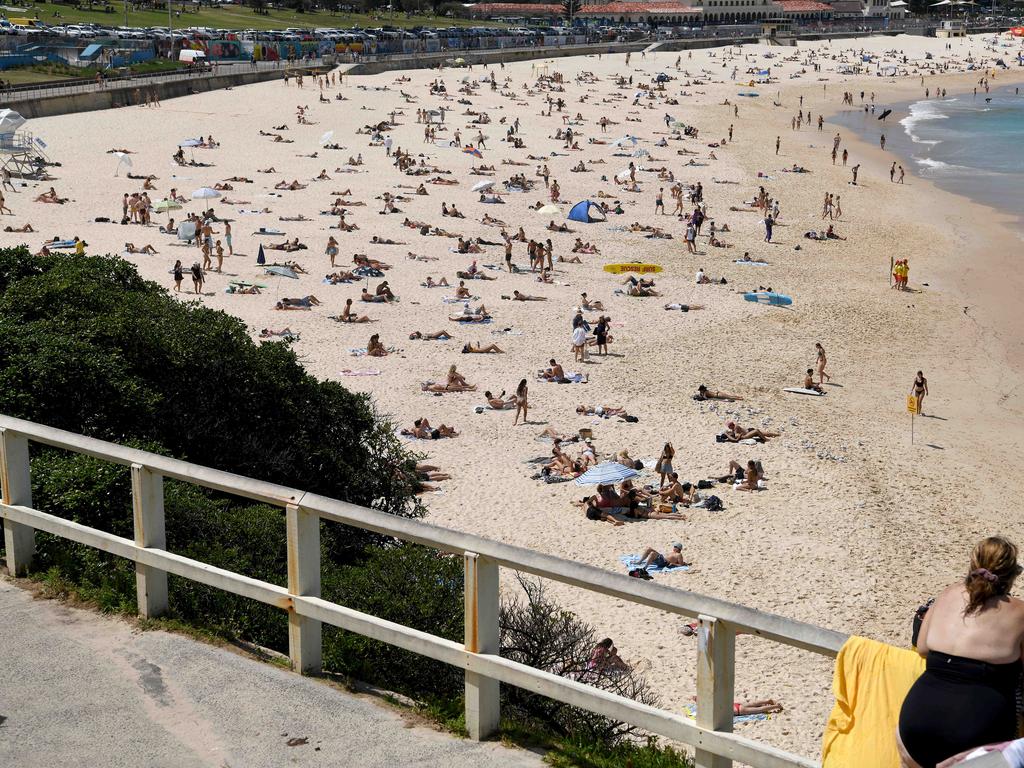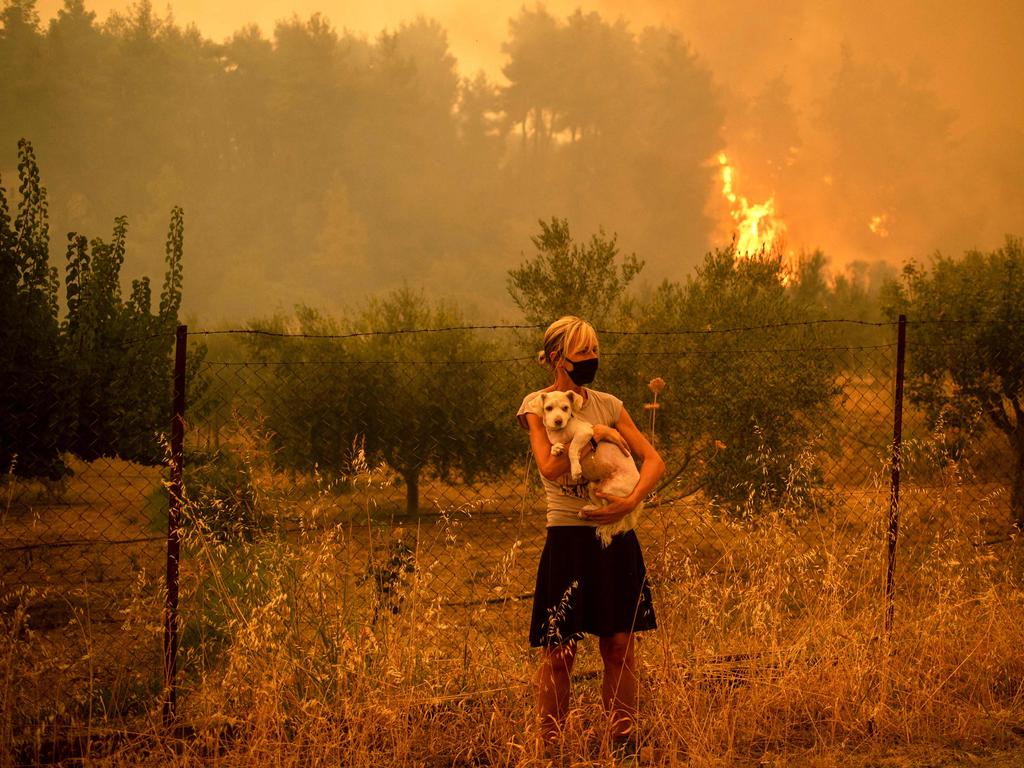Climate change expert’s blunt warning about Australia’s temperature rise
A leading scientific expert today outlined just how high and unbearable temperatures could become in capital cities around Australia.
As Australia’s participation in the global effort to reduce carbon emissions makes headlines around the world, a leading climate scientist has delivered a stark warning of what is to come.
Sarah Perkins-Kirkpatrick is a climate/heatwave scientist at the Centre of Excellence for Climate Extremes at UNSW.
On Wednesday, she told the National Press Club that extreme climate events will increase in frequency and ferocity as the earth warms and attempts to reduce global warming to 2C by 2050 are like “literally flipping a coin”.
She said climate change “is our fault” because of “our addiction to fossil fuels”. The result is a situation that will make Australia’s capital cities unbearably hot and put our regions in the path of more extreme weather events.
“Let me be clear here, limiting global warming to 2C is currently unlikely, and limiting to 1.5C is a pipe dream,” she said.
Time Is Now is part of news.com.au’s partnership with the Monash Climate Change Communication Research Hub, looking at the impacts of climate change across Australia by 2050

“Even in a world where every country pledges and follows through with their emissions targets to net zero by 2050, (the Intergovernmental Panel on Climate Change’s sixth report) states that we have a 50 per cent chance of limiting global warming to 2C. We are literally flipping a coin.
“Of course, extreme events can happen without climate change … But here is the crucial point: extreme events are rare by their very definition. They should not be occurring frequently and should not be changing.
“If our climate were stable, there would be no detectable long-term changes in intensity, frequency or severity of any climate extreme.
“And here is another crucial point: all of these changes have occurred with just 1.1C of global warming, and we have seen some pretty disastrous extremes of late.”
She mentioned Australia’s own black summer, the wildfires in Turkey and Greece and the “horrible fire season in Canada and California”.
Dr Perkins-Kirkpatrick said Australia could conceivably follow in the footsteps of Lytton, Canada, a small town that sits at the same latitude as London and smashed its temperature record by 5C this year.

The town reached 49.6C, a figure the climate scientist admits “surprised me”.
“I did not think a town at 50 degrees latitude could reach such a temperature at our current warming level and I did not expect that a local temperature record could be absolutely smashed by almost 5C,” she said.
“If such records can occur in Canada then it is only a matter of time before they will occur here.
“What if we were to break temperature records by similar margins? If Western Sydney were to break its current temperature record by 5C, the temperature would peak at almost 54C.
“If Canberra were to break its record, the temperature would peak at 49C.
“The amount of global warming we reach dictates just how severe changes in extremes will be. This means catastrophic extreme events of late will not be the worst of their kind.
“New record-shattering events will take their place. Can we imagine a (summer) worse than our black summer? Or a fate for the rural communities worse than what Lytton experienced? We need to and we must. Because this is the future we are facing and we are not even remotely prepared for it.”

Australian Prime Minister Scott Morrison has committed to a carbon neutral future for Australia by 2050.
“This is real. It’s happening. We understand that,” Mr Morrison said this week.
He vowed that the government’s plan to reach net zero was “a good plan for all Australians”, including those in the regions, adding he was “confident that it is going to secure your future, that you can plan for your future with confidence”.
“And we’re backing that up by ensuring that we won’t just be measuring the fact that we’ll be reducing emissions, we’ll be measuring the fact that we’re creating jobs, we’ll be measuring the fact that we’re boosting incomes, we’ll be measuring the fact that we are preserving Australians’ livelihoods, right across the country, because that is also one of the key measures of performance and success with this plan,” Mr Morrison said.
But Australian billionaire Mike Cannon-Brookes was one of those who criticised the PM’s plan, calling it “just more bulls**t”.
The Atlassian co-founder took to Twitter to slam Mr Morrison for not having a detailed plan on how Australia would reach its net zero target.

Dr Perkins-Kirkpatrick said scientists have been “warning of how bad things can get for many decades” but their warnings have been largely ignored.
“Collectively, we have consistently said the sooner we act, the easier it will be to reduce emissions, limit global warming and the consequence of changes in high impact extremes,” she told the NPC.
“Yet, here we are. When my children reach my age, global warming will be double what it is now. This means that in about 30 years, the global temperature will increase by the same amount it has since 1880.”
Mr Morrison will confirm the government’s net zero position when he attends the United Nations COP26 climate conference in Glasgow next week.
— with Samantha Maiden




